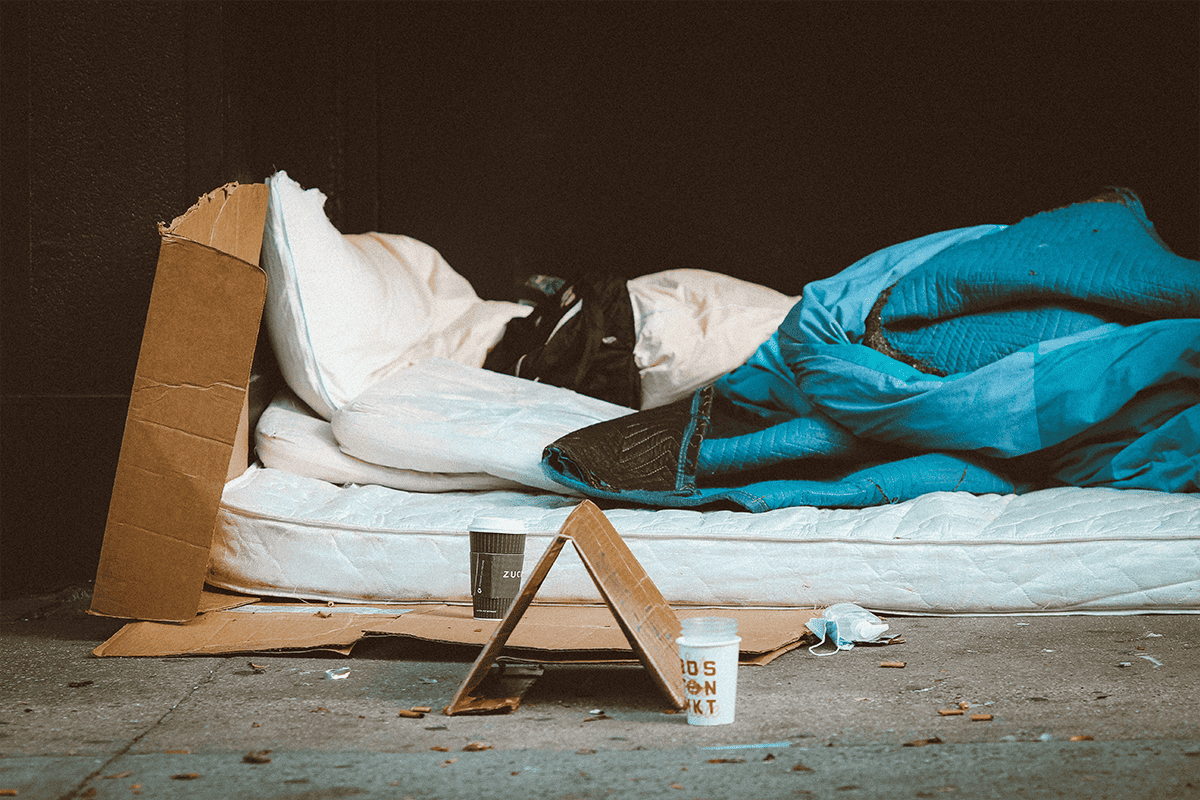Palm Beach County mayor bucks state plan for housing homeless, says ‘Housing First’ is better

WEST PALM BEACH, Fla. – Palm Beach County Mayor Maria Sachs, a Democrat, responded Thursday to a new Florida law signed by Gov. Ron DeSantis that allows local governments to create designated spots for the homeless, and noted her plan to initiate a program called “Housing First.”
“This is a complex issue. It’s not easy to address. You have to be bold. We mayors need to understand this is an issue that has plagued just about every major city in this country, as well as globally,” Sachs told Florida’s Voice. “The issue of homelessness is not new, its complex, but the solutions have to be very innovative.”
Effective Oct. 1, homeless individuals will be effectively banned from camping on city streets, sidewalks, and parks. The law also states individuals will be placed in temporary shelters monitored by law enforcement agencies.
The law also will require homeless occupants to not use drugs in shelters while offering treatment for substance abuse and mental health. Furthermore, the state asserted to having enforcement tools necessary for local governments to comply.
“The bill that was signed into law by the governor is a challenge for every municipality and county government in the state,” Sachs said. “It’s a good idea, but its difficult for us to meet that challenge because of a lack of funding.”
Following Florida’s 2024 Legislative Session, DeSantis signed the bill in March. The bill was carried by Rep. Sam Garrison, R-Fleming Island, and Sen. Jonathan Martin, R-Fort Myers.
“Florida will not allow homeless encampments to intrude on its citizens or undermine their quality of life like we see in states like New York and California,” DeSantis said. “The legislation I signed today upholds our commitment to law and order while also ensuring homeless individuals have the resources they need to get back on their feet.”
During its initial deliberation, Martin noted, “It’s our responsibility to deal with homelessness, and that’s why we can’t wait any longer to bring this solution. The current model is not working.”
He also referenced that the federal government “provides roughly $115 million to continuum of care to provide permanent housing solutions for the homeless,” but the homeless population “continues to grow.”
As a counter to the state’s lead, Sachs listed a series of steps to solving the crisis. The issue has particularly fermented in South Florida from West Palm Beach down to Miami.
“The first thing we have to do as a local government is to collect accurate data on homelessness. We have to find out how many homeless people there are,” Sachs said. “That is something that’s important throughout this county. This way once we know how many homeless and where they are, this data then can drive our policy decisions.”
According to a report from the U.S. Department of Housing and Urban Development, on a single night in January 2023, approximately 653,000 people were homeless in the U.S. About 30,000 of those were in Florida.
“The second thing is to bring in all of our municipalities, and I intend to do that on June 24th,” Sachs said. “I’m calling a symposium of every mayor of 39 cities in Palm Beach County. We’re going to first identify the problem, and see how many homeless we each have in our communities and find solutions.”
As part of her plan, Sachs referenced a “Housing First” research effort across the U.S. and Europe, which puts a homeless person or family in a house.
“In the past, many communities put the homeless in temporary shelters, tents, or encampments. That just breeds further homelessness. Once they are in that stable house, which they will make a home with a roof over their head, bedrooms, bathrooms, and most importantly a kitchen, then we can wrap social services around those who have addictions and behavioral problems,” Sachs said. “Housing first. Not tents, not camps or temporary shelters.
Expanding on the problem, Sachs added the current issue “puts a band aid on a bleeding wound.”
She also mentioned not having to put children in a homeless camp, referencing past instances of internment with the Japanese in California and the instances of internment with the Japanese in California and the Holocaust in Europe during World War II.
“We’re not going to do that, I’m not going to do that. I will not put anybody in a camp or a tent city,” Sachs said. “I’ve discussed this with the sheriff and our administrator and I will find workable housing solutions with the 39 mayors here in Palm Beach County.”
As a proposal, Sachs also floated building “mini houses.”
“People want to live in communities. We all started in a community. If you have a behavioral or addiction problem, then what we can do is we can have wrap around services in this community of mini houses and mini cottages,” Sachs said. “I’m working with the homeless coalition to find how to build mini houses that our suitable for families to live in, but always housing first.”
More broadly, Sachs explained the reaction to her plan from area business leaders.
“The business community is behind this idea of finding appropriate housing for the homeless. There’s nothing worse for business than to have the homeless sleeping outside your entrance,” Sachs said. “I’m not going to frequent a business with my family if I have to walk over a homeless person. This really is a win-win for business and I’m getting encouragement from my business community about this.”
In taking care of the homelessness issue, Sachs emphasized keeping Palm Beach a “vibrant, business orientated county.” She also referenced other popular tourist destinations within South Florida.
“If a person is homeless, they want to go down to the Las Olas area to live, or they want to sleep on the beach, they want to go to Clematis. Those are our are transit corridors that produce a lot of commerce for our cities,” Sachs said. “That’s where we have to focus on helping those homeless folks who are hanging out in front of our businesses and sleeping on the beaches, because we want to make sure we have a beautiful atmosphere, business and family orientated, for all our residents and our tourists.”
On her overall plan, Sachs emphasized “meeting the governor’s challenge” on the impending law.
“Nobody needs to tell Palm Beach County about this issue. We know it, we own it, we accept it, and we will solve it,” Sachs said.




